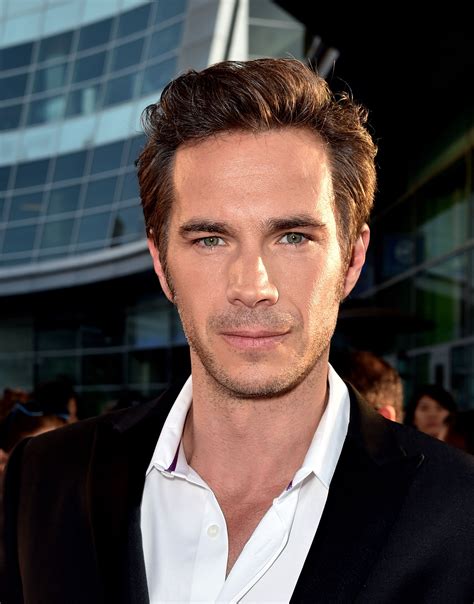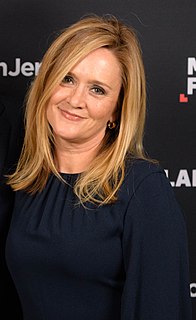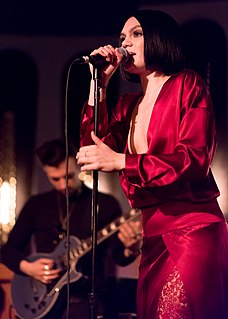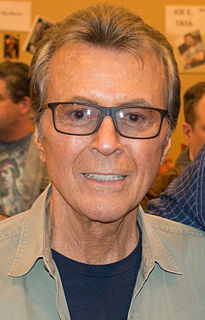A Quote by James D'arcy
I respect journalism. I was always very aware of journalism from a very broad point of view, but I'd say my baptism by fire was doing the Donald Margulies play Time Stands Still. That for me was a real education because I spent a lot of time with some incredible journalists, war reporters particularly - Bob Woodruff, Dexter Filkins - people who were very helpful in painting the picture for me and reading the accounts of people and what they experienced, a lot of PTSD.
Quote Topics
Accounts
Always
Aware
Baptism
Because
Bob
Broad
Doing
Donald
Education
Experienced
Fire
Helpful
Incredible
Journalism
Journalists
Lot
Me
Painting
Particularly
People
Picture
Play
Play Time
Point
Point Of View
Ptsd
Reading
Real
Real Education
Reporters
Respect
Say
Some
Spent
Stands
Still
Time
Very
View
War
Were
Related Quotes
I think that the exchange is very important. Before I did the exhibition in Shanghai, I was a judge for the John Moores Painting Prize and that was very interesting for me, because some of the judges are Chinese and some are British, and we look at the work together. It was fascinating that most of the time we were in complete agreement, but some of the time we were not. People send their works from all over China. For a foreigner, this gave me a very good picture about what is happening in China and its art today.
This is a very proud moment for journalism. I think The New York Times and The Washington Post are genuine champions in this moment. The role that they are playing in democracy is the role that you hear about journalism playing in civics classes. Other people are doing great work, but the Times and the Post have really been leaders. The public is watching, and they are hungry. They know something is wrong, there's a lot of anxiety out there. There's a real sense that the mission of journalism is very clear.
A big part of my book deals with the caliber of journalism. Our journalism in general is deplorable, and on elections in particular it's very ineffectual. There are a lot of problems, a lot of them having to do with to problems within the professional code of journalism, which defines its role as the regurgitation of what people in power say. Another big problem is that we allow people with money to basically buy what's talked about in campaigns through running TV ads.
I've been a performer in the public eye for many years now and it's much darker. It feels so worse now. It feels heavy; it's difficult to deal with. The hatred is unbelievable, but I actually feel a lot more compassion for the journalists and people who aren't used to that. At least on some level, it's been a part of my world for a long time, so I can handle it. I'm not going to say that I'm used to it, because I'm not. I think it's really difficult for people who are just doing journalism and receiving death threats on a very consistent basis.
I'm always very careful to make the distinction between music criticism and music journalism. A lot of people don't. But criticism doesn't require reporting. You can write criticism at home in your underwear. On the other hand, journalism takes legwork - you have to get out there and see things and talk to people.
There are a lot of reporters who I feel are a lot more courageous and fool-hardy than I am. Maybe at the top I'd put Dexter Filkins. He's an extraordinary man in terms of his nerve and ability to get into dangerous situations and tell the story cogently. He's bringing back real human stories. I admire that.
Here was a period where I was particularly attacked, and in untrue ways, some people online said some things that were not true about me - but it was very hurtful. And there was like, a period of time that it was very panicky, I was very upset. And my son at the time was, I guess seven, eight months old, and I would wake up early with him and let my wife sleep.
I don't like real places, but I don't like imagined ones either. I feel like I'm looking for some mixture and it's very hard for me to say because I like to use real place names because there's an uncanny feeling to them, but at the same time I don't ever really try to make them plausible. Sometimes I like to use them as a way to hide in plain sight a little bit, because to me a very exotic or imagined setting has a lot of weight and a lot of burden to it, and it doesn't suit me, but a real place seems to have its own weird legacy, so I don't know what the choice is?




































